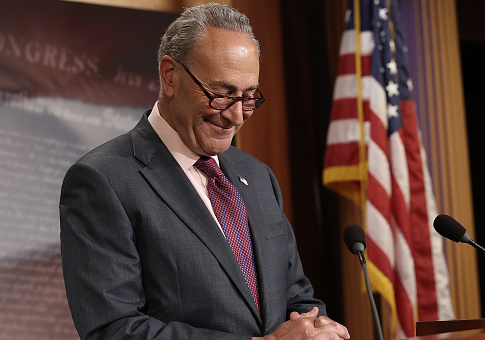Senate Minority Leader Chuck Schumer (D., N.Y.) said during a Senate floor speech Friday that a Supreme Court nominee from President Donald Trump would have an obligation to share their personal views on an array of legal issues, despite having said a year earlier that you can't ask a judge about a specific case.
In February 2017 following the nomination of Neil Gorsuch to the Supreme Court, Schumer said senators can't ask a nominated judge his or her opinion on specific issues.
"There is a grand tradition, that I support, that you can’t ask a judge who was nominated or a potential judge who was nominated for a judgeship about a specific case that might come before them," he said.
At some point since then, Schumer appears to have changed his mind on that tradition. Schumer said Monday afternoon:
"Considering the ample evidence that President Trump will only select a nominee who will undermine protection for Americans with preexisting conditions, give greater weight to corporate interests than the interests of our citizens, no what matter what president says, and vote to overturn Roe v. Wade, the next nominee has an obligation, a serious and solemn obligation, to share their personal views on these legal issues, no matter whom President Trump selects tonight."
The tradition Schumer had previously expressed support for is known as the Ginsburg Rule, named for Justice Ruth Bader Ginsburg's refusal to answer questions about her personal views on issues that might come before the Supreme Court.
Trump nominated Brett Kavanaugh on Monday to fill the vacancy left by the retirement of Anthony Kennedy.
